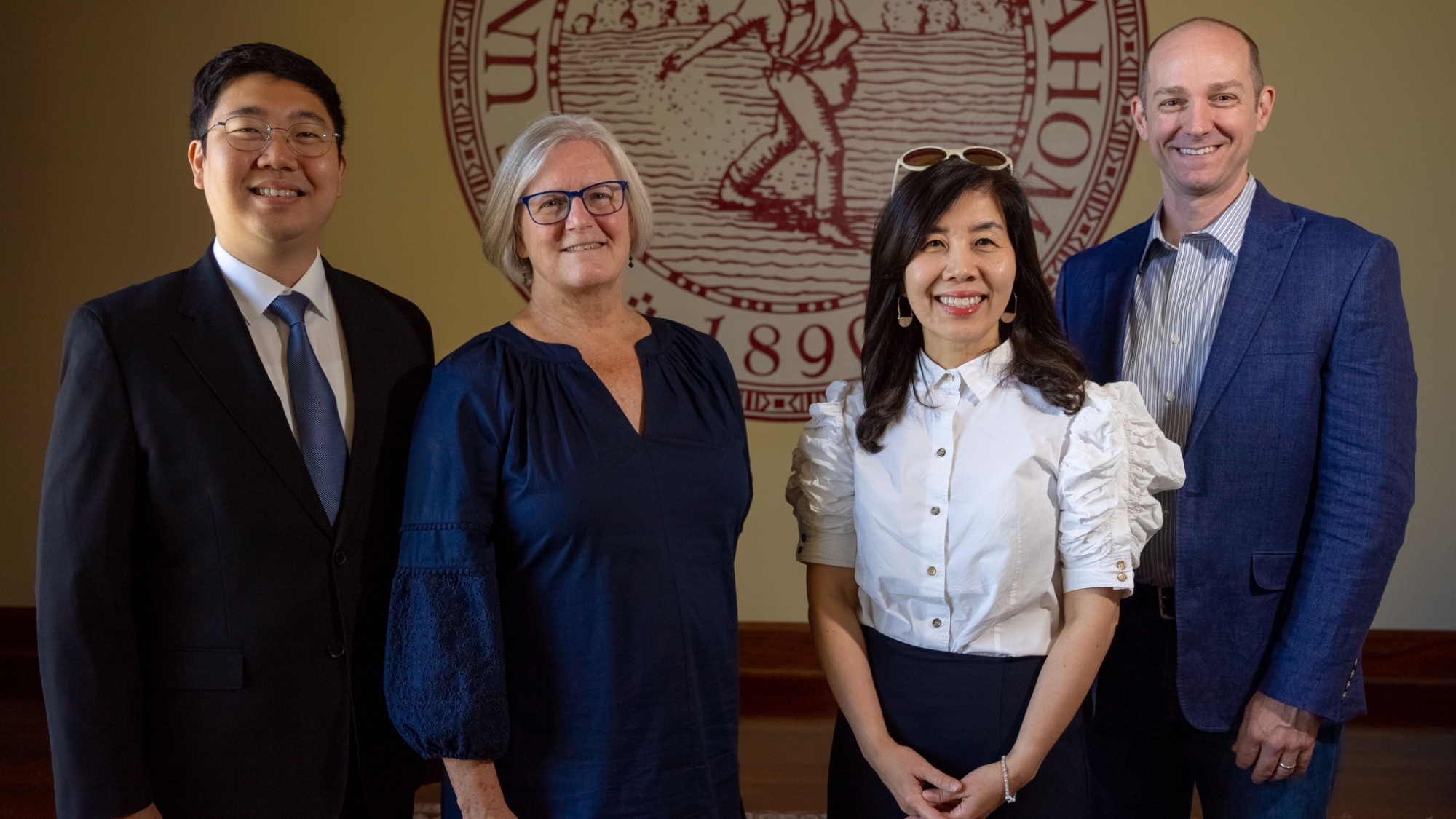
Research has shown that childhood peers can influence the behavior and development of young children, but a team of researchers from University of Oklahoma - composed of Jeannine Rainbolt College of Education faculty from both Tulsa and Norman campuses, have received a grant from the U.S. Department of Health and Human Services to delve further into this interesting finding.
“Current research mainly focuses on the influence of caregivers like teachers and parents, on children's learning and development. The research gives less attention to the impact of peers on young children's outcomes,” says Dr. Wonkyung Jang, principal investigator on the project and assistant professor in the department of Instructional Leadership and Academic Curriculum (ILAC) at OU-Tulsa. “We will use cutting edge machine learning techniques to dig into data on peer effects in early care and education settings.”
He goes on to explain that most peer effect studies have explored simply whether or not peer effects exist, but their research will examine the ways in which exposure to peers has an impact on young children, infancy to five years of age, as well as how different contexts play a role in these interactions.
The research proposal, “Innovative Approaches to Studying Peer Effects in Head Start and their Implications for Policy, Research, and Practice,” has been granted an expected $100,000 for the 18-month duration of the data study. The team will use data collected from Head Start and Early Head Start programs that are part of the Educare Network.
“The Educare Learning Network currently is a collaborative of 25 high quality early childhood programs designed for children birth to age five across the country. It goes from Maine to Southern California, from Seattle to Florida, with many programs clustered in the Midwest,” says Dr. Diane Horm, founding director of the Early Childhood Education Institute at OU-Tulsa, the George Kaiser Family Foundation Endowed Chair of Early Childhood Education, and a member of the team for this project. “The sample is really diverse. And that's an exciting thing about this project - not only is our sample so large, but it's current and diverse. This feature distinguishes our study from others using datasets that are older and thus not as reflective of the current composition of young children across the US.”
According to Dr. Jang, there are four areas of research the study will address:
Once the review and analysis of the data has been completed, the Educare Network – including the Head Start and Early Head Start programs - will benefit from the findings to use in future policy and program decisions.
Kyong-Ah Kwon, the Cable Endowed Chair in Early Childhood Education, an associate professor and leader of the OU Happy Teacher Project Team, explains the value of these findings.
“This study will have very important implications for how all Head Start and Early Head Start [programs] will consider their current policy and practices to maximize children's learning and potential and then offer a more equitable learning environment for those children,” she says.
Dr. Jang and his team for this study are supported by the Early Childhood Education Institute, an applied research group at OU-Tulsa who partners with Tulsa Educare and other local early childhood programs and the OU Happy Teacher Project, an interdisciplinary collaboration that takes a holistic and comprehensive approach to studying teacher well-being including physical, psychological and professional well-being, as well as how workplace conditions support these three areas.
Dr. Jang will lead the OU team alongside, Dr. Kwon, Dr. Horm, and Dr. Tim Ford, an associate professor in the Department of Educational Leadership and Policy Studies, program coordinator for Tulsa programs and the director of the Leadership and Policy Center for Thriving Schools and Communities.
Collaborators at the Educare Learning Network and researchers at the Frank Porter Graham Child Development Institute at the University of North Carolina at Chapel Hill, including senior research scientist Noreen Yazejian, will also join the OU team for this project.
The collaboration of several OU units, researchers at UNC-Chapel Hill, and colleagues representing Educare ensures the research is informed by multiple perspectives. This intentional design will increase the relevance of the findings for informing practice, policy as well as future research. This approach aligns with OU’s research focus on transdisciplinary, convergent research that is robust and meaningful.